#9th Circuit
Text
Ninth Circuit Reverses Class Certification Order Because Liability Issues, Not Merely Damages, Were Individualized
Ninth Circuit Reverses Class Certification Order Because Liability Issues, Not Merely Damages, Were Individualized
The Ninth Circuit recently addressed an issue that tends to arise frequently in class certification motion practice: how trial courts should apply the predominance requirement where appellate decisions have said that the need to calculate individualized damages generally is not sufficient on its own to defeat class certification, but some putative class members likely have no damages. On these…
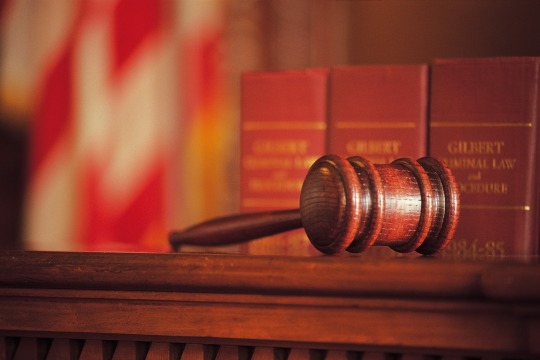
View On WordPress
#9th Circuit#business#California#Civil Procedure#class certification#courtroom#law firms#lawyers#legal#Litigation#Ninth Circuit#trial practice
0 notes
Text
Ian Millhiser at Vox:
The Supreme Court will hear a case later this month that could make life drastically worse for homeless Americans. It also challenges one of the most foundational principles of American criminal law — the rule that someone may not be charged with a crime simply because of who they are.
Six years ago, a federal appeals court held that the Constitution “bars a city from prosecuting people criminally for sleeping outside on public property when those people have no home or other shelter to go to.” Under the United States Court of Appeals for the Ninth Circuit’s decision in Martin v. Boise, people without permanent shelter could no longer be arrested simply because they are homeless, at least in the nine western states presided over by the Ninth Circuit.
As my colleague Rachel Cohen wrote about a year ago, “much of the fight about how to address homelessness today is, at this point, a fight about Martin.” Dozens of court cases have cited this decision, including federal courts in Virginia, Ohio, Missouri, Florida, Texas, and New York — none of which are in the Ninth Circuit.
Some of the decisions applying Martin have led very prominent Democrats, and institutions led by Democrats, to call upon the Supreme Court to intervene. Both the city of San Francisco and California Gov. Gavin Newsom, for example, filed briefs in that Court complaining about a fairly recent decision that, the city’s brief claims, prevents it from clearing out encampments that “present often-intractable health, safety, and welfare challenges for both the City and the public at large.”
On April 22, the justices will hear oral arguments in City of Grants Pass v. Johnson, one of the many decisions applying Martin — and, at least according to many of its critics, expanding that decision.
Martin arose out of the Supreme Court’s decision in Robinson v. California (1962), which struck down a California law making it a crime to “be addicted to the use of narcotics.” Likening this law to one making “it a criminal offense for a person to be mentally ill, or a leper, or to be afflicted with a venereal disease,” the Court held that the law may not criminalize someone’s “status” as a person with addiction and must instead target some kind of criminal “act.”
Thus, a state may punish “a person for the use of narcotics, for their purchase, sale or possession, or for antisocial or disorderly behavior resulting from their administration.” But, absent any evidence that a suspect actually used illegal drugs within the state of California, the state could not punish someone simply for existing while addicted to a drug.
The Grants Pass case does not involve an explicit ban on existing while homeless, but the Ninth Circuit determined that the city of Grants Pass, Oregon, imposed such tight restrictions on anyone attempting to sleep outdoors that it amounted to an effective ban on being homeless within city limits.
There are very strong arguments that the Ninth Circuit’s Grants Pass decision went too far. As the Biden administration says in its brief to the justices, the Ninth Circuit’s opinion did not adequately distinguish between people facing “involuntary” homelessness and individuals who may have viable housing options. This error likely violates a federal civil procedure rule, which governs when multiple parties with similar legal claims can join together in the same lawsuit.
But the city, somewhat bizarrely, does not raise this error with the Supreme Court. Instead, the city spends the bulk of its brief challenging one of Robinson’s fundamental assumptions: that the Constitution’s ban on “cruel and unusual punishments” limits the government’s ability to “determine what conduct should be a crime.” So the Supreme Court could use this case as a vehicle to overrule Robinson.
That outcome is unlikely, but it would be catastrophic for civil liberties. If the law can criminalize status, rather than only acts, that would mean someone could be arrested for having a disease. A rich community might ban people who do not have a high enough income or net worth from entering it. A state could prohibit anyone with a felony conviction from entering its borders, even if that individual has already served their sentence. It could even potentially target thought crimes.
Imagine, for example, that an individual is suspected of being sexually attracted to children but has never acted on such urges. A state could potentially subject this individual to an intrusive police investigation of their own thoughts, based on the mere suspicion that they are a pedophile.
A more likely outcome, however, is that the Court will drastically roll back Martin or even repudiate it altogether. The Court has long warned that the judiciary is ill suited to solve many problems arising out of poverty. And the current slate of justices is more conservative than any Court since the 1930s.
[...]
The biggest problem with the Ninth Circuit’s decision, briefly explained
The Ninth Circuit determined that people are protected by Robinson only if they are “involuntarily homeless,” a term it defined to describe people who “do not ‘have access to adequate temporary shelter, whether because they have the means to pay for it or because it is realistically available to them for free.’” But, how, exactly, are Grants Pass police supposed to determine whether an individual they find wrapping themselves in a blanket on a park bench is “involuntarily homeless”?
For that matter, what exactly does the word “involuntarily” mean in this context? If a gay teenager runs away from home because his conservative religious parents abuse him and force him to attend conversion therapy sessions, is this teenager’s homelessness voluntary or involuntary? What about a woman who flees her violent husband? Or a person who is unable to keep a job after they become addicted to opioids that were originally prescribed to treat their medical condition?
Suppose that a homeless person could stay at a nearby shelter, but they refuse because another shelter resident violently assaulted them when they stayed there in the past? Or because a laptop that they need to find and keep work was stolen there? What if a mother is allowed to stay at a nearby shelter, but she must abandon her children to do so? What if she must abandon a beloved pet?
The point is that there is no clear line between voluntary and involuntary actions, and each of these questions would have to be litigated to determine whether Robinson applied to an individual’s very specific case. But that’s not what the Ninth Circuit did. Instead, it ruled that Grants Pass cannot enforce its ordinances against “involuntarily homeless” people as a class without doing the difficult work of determining who belongs to this class.
That’s not allowed. While the Federal Rules of Civil Procedure sometimes allow a court to provide relief to a class of individuals, courts may only do so when “there are questions of law or fact common to the class,” and when resolving the claims of a few members of the class would also resolve the entire group’s claims.
The Grants Pass v. Johnson case at SCOTUS could make life worse for unhoused Americans.
#Unhoused People#Homelessness#Grants Pass v. Johnson#SCOTUS#Crime#Martin v. Boise#9th Circuit Court#8th Amendment#Poverty#Grants Pass Oregon
35 notes
·
View notes
Text
The Supreme Court on Monday said Idaho can enforce a law banning gender transition care for minors, stepping into the debate over an issue that has divided lower courts.
The court did so over the objections of the three liberal justices.
It’s the first case about restrictions on puberty blockers and hormone therapy for transgender people under age 18 that the court has acted on. But it does not get to the underlying legal questions of the ban itself, an issue that has divided lower federal courts and is part of a wave of conservative legislation and litigation aimed at transgender Americans.
Justice Kentanji Brown Jackson, writing for herself and Justice Sonya Sotomayor, criticized the majority for granting Idaho’s request through its “emergency” route, rather than letting it proceed through the regular channels.
“This Court is not compelled to rise and respond every time an applicant rushes to us with an alleged emergency, and it is especially important for us to refrain from doing so in novel, highly charged, and unsettled circumstances,” Jackson wrote.
But Justice Neil Gorsuch, joined by Justices Samuel Alito and Clarence Thomas, said the district court went further than it should have when it blocked the state from enforcing any aspect of the law while it’s being litigated. That decision threatened to suspend the law indefinitely because it can take years to reach final judgment, Gorsuch wrote.
Justice Brett Kavanaugh wrote his own defense of the majority’s order in a concurrence joined by Justice Amy Coney Barrett.
Chief Justice John Roberts did not make his position public.
The court could also decide soon whether it will review such bans in Tennessee and Kentucky. That election-year decision would come as transgender issues have become an increasingly potent political issue.
Passed last year, Idaho’s law is being challenged by the families of two transgender teenagers.
After lower courts temporarily blocked enforcement, Idaho asked the Supreme Court to let it go into effect with an exception carved out for the challengers.
The American Civil Liberties Union, which is representing the two Idaho families, said that option won't protect the teenagers as medical providers won't want to risk triggering a law that could put them behind bars for a decade. Also, the teens would have to give up their anonymity.
AN 'AWFUL RESULT FOR TRANSGENDER YOUTH'
The ACLU called the Supreme Court's decision an "awful result for transgender youth and their families across the state."
"Today's ruling allows the state to shut down the care that thousands of families rely on while sowing further confusion and disruption," the group said in a statement.
Praising the court's decision, Idaho Attorney General Raúl Labrador said the law ensures minors will not be subjected to life-altering drugs and procedures.
"Denying the basic truth that boys and girls are biologically different hurts our kids," he said in a statement.
Filed as an emergency request, Idaho’s appeal to the high court is a prelude to the larger pending issue: Whether the justices will uphold such bans, which have proliferated in recent years.
KENTUCKY, TENNESSEE TRANSGENDER CASES MAY COME NEXT
Families of transgender children have asked the Supreme Court to overturn a ruling by the Cincinnati-based U.S. Court of Appeals for the 6th Circuit allowing Kentucky and Tennessee to ban gender-affirming medical care for minors.
The Justice Department has weighed in on the side of the families, telling the court that its input is “urgently needed” to definitively resolve whether the bans are discriminatory.
“These laws, and the conflicting court decisions about their validity, are creating profound uncertainty for transgender adolescents and their families around the nation,” Solicitor General Elizabeth Prelogar said in a filing.
The court could announce as early as this month if they will hear the appeals.
Combined with other state actions to restrict the bathrooms transgender students can use and what sports teams they can join, the laws are expected to be a major issue in this year’s elections.
TRUMP SAYS HE WILL PUSH TO BAN GENDER-AFFIRMING CARE FOR MINORS
Former President Donald Trump, the presumptive GOP nominee, has said he will press Congress to pass a law banning gender-affirming care for minors and will cut federal funding for schools pushing “transgender insanity” if he returns to the White House.
President Joe Biden has boasted about steps he’s taken to strengthen the rights of “transgender and all LGBTQI+ Americans.”
The issue has gained prominence with startling speed, despite the tiny fraction of Americans who are transgender.
Since 2022, the number of states taking steps to limit access to gender-affirming care for minors has grown from four to 23, according to the nonpartisan health research organization KFF. Restrictions were fully in effect in 17 states as of January.
That’s despite the fact that most major medical groups support youth access to gender-affirming care.
The American Medical Association has called the state bans a “dangerous intrusion of government into the practice of medicine and the criminalization of health care decision-making.”
“Gender-affirming care is medically necessary, evidence-based care that improves the physical and mental health of transgender and gender-diverse people,” Dr. Michael Suk, a member of the AMA board, said when the group reinforced its opposition to state bans in 2021.
DEPRESSION, ANXIETY AND SELF-HARM
One of the transgender teenage girls challenging Idaho’s law suffered from depression, anxiety and self-harm before starting gender-affirming medical care, according to filings. The mental health of the other teen likewise deteriorated as puberty began.
Their parents have told the courts they’re terrified about the impact on their daughters’ health and lives if they can’t continue treatment.
Labrador, Idaho's attorney general, argued the law is needed to protect “vulnerable children” from what he called “risky and dangerous medical procedures.”
“Idaho should be able to protect children from experimental medical procedures that cause irreversible and life-long harms,” Labrador wrote in his appeal to the Supreme Court.
Originally scheduled to go into effect in January, Idaho's law was temporarily blocked by a district court judge in Idaho while it’s being litigated. The San Francisco-based U.S. Court of Appeals for the 9th Circuit upheld that decision in January.
Despite the litigation swirling around transgender minors, the Supreme Court has largely been silent on the issue. In April, the high court sided with a 12-year-old transgender girl who was challenging a West Virginia ban on transgender athletes joining girls sports teams, temporarily blocking the state from enforcing the prohibition. The ruling came on the court's emergency docket and did not resolve the underlying questions in the case.
In January, the Supreme Court declined to decide whether schools can bar transgender students from using a bathroom that reflects their gender identity, leaving in place a lower court ruling that allowed a transgender middle school boy in Indiana to use the boys' bathroom.
#us politics#news#us supreme court#idaho#Kentucky#Tennessee#2024#gender affirming care#trans rights#reproductive health#reproductive rights#bodily autonomy#Justice Kentanji Brown Jackson#Justice Sonya Sotomayor#Justice Neil Gorsuch#Justice Samuel Alito#justice Clarence Thomas#Justice Brett Kavanaugh#Justice Amy Coney Barrett#Justice John Roberts#American Civil Liberties Union#Raúl Labrador#6th Circuit US Court of Appeals#Elizabeth Prelogar#president joe biden#donald trump#American Medical Association#9th Circuit US Court of Appeals
9 notes
·
View notes
Text

After bomberman 64 comes two more bombermans lol, I will be holding Bomberman 64 Second Attack for later because I am playing it coop with twinkles and I dont wanna rush, but I did finish Bomber Hero! It was pretty fun and much easier to control than the other 2, but I didnt do 100%... At the start I actually wanted to try, and I know they like to hold extra content after completition in these games, but... getting the best rank on bosses is impossible even with cheats so I gave up glkhsdklghdg

continuing on after the bomberman fever we have........ another baseball game, Bottom of the 9th, since I stopped the first one so soon I decided to try again, I playied the training, I still dont get it, I am not gonna be playing any more of those lol

Brunswick Circuit Pro Bowling is... a pretty standard bowling video game, it is ok if that is what you want lol, no wii sports fghlkghfdfgdfçlgjdf

And finally the long awaited Buck Bumble I never actually playied it back in the day so it is my first time with this gem hah, the gameplay is way better than I expected! The flight controls felt great and the shooting is pretty alright too, I only used the cheat for infinite lives as I usually do with these games but otherwise managed to finish the whole game in pretty much one sitting hah (I had too because the save corrupted the first timelkdfghsd)
5 notes
·
View notes
Text
Stop your prayers, FFRF admonishes N.C. school board
Publisher: In-Sight Publishing
Publisher Founding: September 1, 2014
Publisher Location: Fort Langley, Township of Langley, British Columbia, Canada
Publication: Freethought Newswire
Original Link: https://ffrf.org/uncategorized/stop-your-prayers-ffrf-admonishes-n-c-school-board/
Publication Date: April 30, 2024
Organization: Freedom From Religion Foundation
Organization Description: The…
View On WordPress
#9th U.S. Circuit Court#Annie Laurie Gaylor#Chino Valley Unified School District#coercive#Establishment Clause#First Amendment#Freedom From Religion Foundation#Lund v. Rowan County#nonreligious citizens#North Carolina#prayer#school board#sectarian prayer#Supreme Court#Winston-Salem/Forsyth County Schools
0 notes
Text
Physics 301 Circuit Theory - Virtual University
Physics 301 Circuit Theory Assignement is for the Students of Virutual University of Pakistan. This assignment is about the equivalent resistance Rab of given circuit. While calculation, we also described the calculation methods in this assignment. So that the students can get maximum marks. The circuit diagram of each step is also drawn to make it easy to understand the concept of the equivalent…
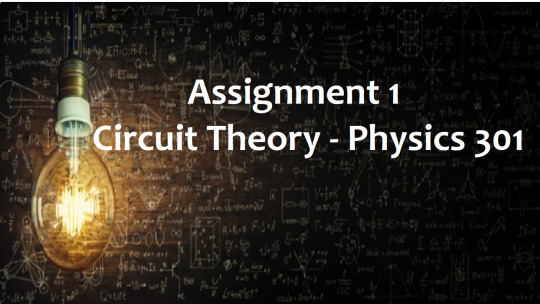
View On WordPress
#10th chemistry#1st year tests chemistry#9th class#9th class chapter wise tests#9th class math notes#9th class mathematics#9th class mathematics lecture#9th Class Pakistan Studies#9th Class Tests#baab ul ilm#baab ul ilm academy#baab ul ilm notes#baabulilm#baabulilm learning point#chemistry 10th guess paper#chemistry 1st year tests#chemistry class 10 tests#chemistry test series#circuit theory#circuit theory assignment#education#Educational News#matric math notes#physics 301#physics 301 assignment#sir irfan#test session chemistry class 10th#Test Session Chemistry class 9th#Urdu - Our National Language#virtual univeristy projects
0 notes
Text
SCOTUS’ Predictions Based on Lower Court Judges
One of the best ways to forecast future events is through past trends. The U.S. Supreme Court hears the majority of its cases after a decision is rendered by one of the 13 federal courts of appeals. Since there are 13 circuits and the Supreme Court takes somewhere between 60 and 70 cases each term the Court ends up taking multiple cases from most circuits each term. Last term the high numbers…

View On WordPress
#5th Circuit Court of Appeals#9th Circuit Court of Appeals#Bartenwerfer v. Buckley#Dobbs v. Jackson Women&039;s Health#Helix Energy Solutions Group v. Hewitt#Judge Bumatay#Judge Dennis#Judge Ho#Judge Kayatta#Judge Lynch#Judge Milan Smith#Judge Newman#Judge Pooler#Judge Selya#Judge Thompson#Judge Torruella#Judge VanDyke#Ramirez v. Collier#Ysleta del Sur Pueblo v. Texas
0 notes
Text
SO AMERICAN 𐙚 lando norris

౨ৎ lando norris x sargeant!reader

the one where lando notices logan sargeant his sister at the miami grand prix
taglist if you'd like to be added to my taglist, message me privately or comment on this post
warning this is all fake and just for fun, no hate to any of the people mentioned. Just a reminder that this is pure for entertainment хохо
main masterlist 𐙚 lando masterlist

━━ 𝓜AY 7TH, 2023
౨ৎ yourinstagram posted on their stories

viewed by oscarpiastri, logansargeant and 5.873 others
replies to your story
username yess mother is finally at the gp
username it’s almost like youre family😨
logansargeant stop making me look like that
yourinstagram never🦅🦅
౨ৎ messages oscar/lando
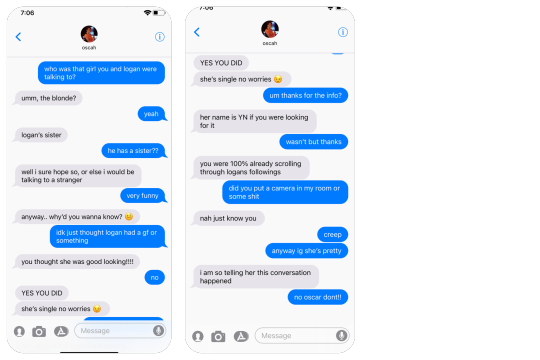
౨ৎ messages oscar/logan/yn

౨ৎ yourinstagram miami, florida

liked by landonorris and 64.893 others
yourinstagram miami grand prix was a big succes (for me not for logan)
view all 794 comments
username the call out please
username what is lando doing here
username she’s close w oscar so probably just met this weekend through him
logansargeant stop using me for clout
yourinstagram no one knows you
oscarpiastri oh
alexalbon harsh
username logan always fighting for his life on this account
username the better Sargeant fr
౨ৎ instagram DM landonorris/yourinstagram
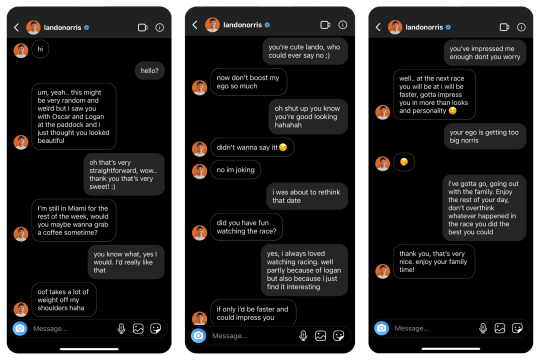
━━ 𝓜AY 10TH, 2023
౨ৎ landonorris/yourinstagram posted on their stories

౨ৎ f1fan twitter

౨ৎ yourinstagram miami, florida

liked by logansargeant and 91.693 others
yourinstagram didn’t forget my sunscreen this time yay
view all 828 comments
username girl aint no one talking about sunscreen here, what’s lando doing here though
username please, honestly why girl talking abt sunscreen
username logan us fuming fr
logansargeant um.. i didn’t approve this
yourinstagram well luckily i dont need approval
username lando wtf r you doing here buddy
username off topic but you’re so gorgeous what
username idk what’s happening but i ship this tbh
౨ৎ f1fan twitter

౨ৎ messages oscar/logan/yn

━━ 𝓙ULY 9TH, 2023
౨ৎ f1fan twitter
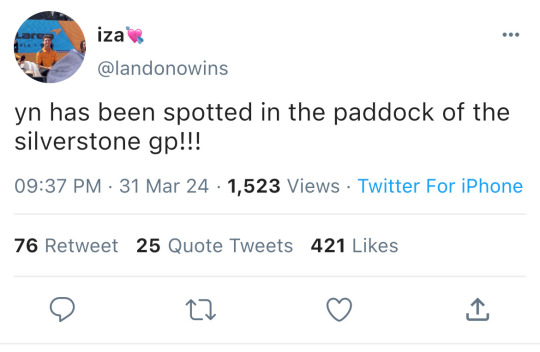
౨ৎ yourinstagram posted on their stories

౨ৎ messages lando/yn
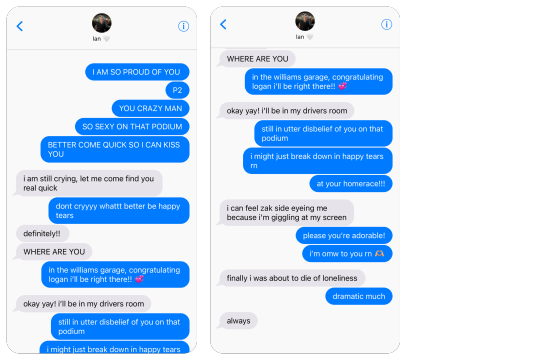
౨ৎ landonorris silverstone circuit

liked by maxfewtrell and 1.084.739 others
landonorris p2 and a 🏆 at my homerace!!!!! ❤️
view all 8.618 comments
mclaren what a result🧡
username the way i’ve been crying
maxfewtrell proud brother 🧡
yourinstagram HE’S THE MAN
username so real
yungfilly well done brother 🔥❤️
username let him cook!!!
username that’s so sexy
lnfour who’s cutting onions here 🥹
team_quadrant frame it 🖼️
౨ৎ yourinstagram posted on their stories

━━ 𝓢EPTEMBER 17TH, 2023
౨ৎ landonorris marina bay singapore

liked by oscarpiastri and 1.183.792 others
landonorris carlando podium and p2 in singapore!! thank you guyss❤️
view all 5.893 comments
username um excuse me sir whats that last picture
oscarpiastri 👏
mclaren YESSSSSSSIRRRRRRRR
yourinstagram things he did. THAT.
username the way you looked so proud🥹
username is that u in the photo🫢
username did bro just-
౨ৎ yourinstagram marina bay singapore

liked by landonorris and 104.793 others
yourinstagram hey my boyfriend got p2 this weekend 🧡
view all 983 comments
username the hard launch holy shit
username im tryna act suprised but wbk
landonorris i love youuuu
yourinstagram love you the mostest
username he did amazing this weekend
logansargeant gross but congrats lando
landonorris thanks mate
yourinstagram you love us
oscarpiastri this is my doing guys, i got them together!
yourinstagram bro only gave my name to lando but whatever helps you sleep at night
taglist - @louvrepool @italyrryx @buendiabebeta @janeholt3 @privatemythss @lightdragonrayne @namgification @aquangxl @sammyam @americanbluebirdrb @nxrrislando
#formula one#mclaren#lando norris masterlist#lando norris smau#lando norris x reader#lando norris#logan sargeant#f1#f1 fanfic#f1 x reader
2K notes
·
View notes
Text
very kind of the advocates in cruz v arizona to conveniently ignore all the times kagan refers to arizona as "california"
#you can't just assume that because it's a 9th circuit case! it's a habeas case so ofc there's a good chance it'll be arizona#still not as hard to ignore as when she kept saying 'stimulation' instead of 'simulation' in the cffa cases#anyways if i've learned anything from this case it's that arizona criminal procedure law is even more fucked than you imagine#even if you're thinking of 'what would the state that tolerated Joe Arpaio do' it still might surprise you#'the death row inmate's lawyer needed to object during sentencing in order to get arizona to actually follow the supreme court precedent#i was saying earlier about the supreme court but one of the best things the warren court did was assert serious federal judicial control#over state criminal matters even tho they absolutely made a hash of it
0 notes
Text
Astrology observations No.16: Lilith Edition
*just based on my experiences please take them with a grain of salt

**the taming your Lilith femininity post can be found here fyi ;0
-The element of your Lilith could point to what people find so scandalous about you. Air: your otherworldly air and intelligence; Water: your sensuality and emotional expression; Earth: Your strength and grounded nature; Fire: Your fierce energy and how you’re too hot to handle
-if Lilith has aspects to your Venus (especially conjunct/opposition/square) you may have guys say they don’t usually date girls like you/of your cultural background (twice as likely if your Venus or Lilith is in Sagittarius) (also that gives me the ick instantly ngl)
-Lilith conjunct/opposition/square 1st/7th/8th/10th could point to being hit on in the weirdest ways ever. (Guys have yelled at me from car windows, or been in my dms for actual years, at a convention a guy was pushing a stroller and said there goes my wife so loudly and so close to my face I didn’t even catch it until a moment after. I mean the other day a dude called my hair pretty then asked if it was heavy- like huh?? Dudes are weird)
-Lilith aspects to mars (especially conjunct/opposition/square) could point to people shaming you for expressing frustration/anger, especially in your youth

-I’ve had soooo many dudes short circuit on me with our Lilith synastry omg. I have stories lol. A lot of guys being into me and running off then coming back (they don’t get to come back in tho! Gross) I’ve felt it the most with Lilith conjunct sun synastry, underdeveloped guys have been competitive and obsessive. Like belittling in an envious way but also trying to make me feel smaller to always keep me around because they were too into my energy (it didn’t work). It can work out with a partner that is self aware and respectful and turn into the sun person showing you a side of themselves that they don’t show anyone else. It just takes a minutes to weed it out lol.
-I would imagine that Lilith conjunct/opposition/square Moon and Venus would be even more of a whirlwind. Lilith would be bringing out the Moon native’s hidden emotions and taboo emotional motivations (it’s giving the guy in Hustlers that came in to guilt his girlfriend into coming home for the night from her job at the strip club, but like that manipulative and petty all the time). And Lilith would bring out hidden and taboo desires in the Venus native (secret girlfriend, can’t meet their friends or family just “because it’s not the right time”- but it’s never the right time, you thought you were dating but it turns out you were the other woman, etc)
-Also Lilith conjunct/opposition/square someone else’s ascendant is very likely to make the other person act jealous and petty towards you
-Lilith in 12th could point to being a lot of people’s secret fantasies, hidden people that deeply desire you or envy you

-A lot of prominent Lilith placements are prone to fertility issues but I’d assume this is even more likely for Lilith in 6th
-Lilith in 7th could date partners that try to change them as soon as they get into a relationship with them (censor how you dress, dictate your hair cut, just really get terribly controlling because they assume your “theirs”) (I’ve also experienced this with Lilith in 10th, and I would guess the same for Lilith in 1st/aspects to 1st or 10th or 7th)
-Lilith in 8th could point to s*xual trauma and at the very least going through many transformations before coming into your own sexuality
-Lilith in 9th could point to blossoming into yourself abroad or in a country outside of your origin. It can also point to receiving a lot of s*xual attention outside of your cultural group.

-Lilith in 1st/10th/11th could point to difficulty and backstabbing in female friendships. In 6th & 10th this could carry over to workplaces. In 7th this points to being the other woman in relationships or women coming onto your partner
-Lilith in 3rd could point to having trouble in school, not only socially but with authority figures believing your intelligence (and the believing your intelligence part definitely carries over into adulthood)
-Lilith in 4th often points to a terribly frustrating childhood where you were constantly critiqued by female members of your family, especially your mother. You could’ve felt like your mother/aunts/etc were always trying to compete with you for male attention as well (which is weird, weird grown folks). (it’s not great for Lilith in 1st/8th/10th either but this is on another level)
-Lilith in 10th (square/opposition to 10th as well) can point to being treated like a pariah for no reason at work. I’ve found that when I tried to be friendly I got a lot of kindness outside of my department …but still thrown under the bus with a smile in my department. Then I kept my distance at a later day job and was met with hostile or belittling energy. (This one guy would just constantly walk by and look at my laptop and ask what I was working on when he wasn’t my manager and my manager hadn’t assigned me anything, then he would just chat me up for no reason, always switching between hostile and like almost flirtatious energy. like dude worked on the other side of the office and kept doing this until he left ! Never working in an office again I swear…)

-Also Lilith in 1st/10th- often men in power/positions off authority often dote on you for some reason, especially if they’re older (I still can’t figure why this is though)
-Lilith negative (conjunct/square/opposition) aspects to 1st/10th In “normal” (suburban neighborhoods and pedestrian places like that) you may find that you get this weird thirsty look from guys, who are supposed to be minding their business with their families, like you’re walking around naked when you could be wearing the most lowkey outfit and it wouldn’t make a difference (it’s also why I prefer cities, but even then in some neighborhoods I stick out)
-Your Lilith sign itself always indicates the Lilith behavior you have to learn to “tame” (ex. leo in Lilith has to make sure they’re not too much of a diva), but I also believe it shows you how you need to fight for others (ex. leo in Lilith- use your radiant nature to speak out on the taboo and spotlight helping social causes)- I can do a post elaborating on this if you guys want ;0
-Self awareness is really important with strong Lilith energy. I’ve had overlays with other women/femmes with strong Lilith placements and so many times I’ve had them become mean girls and envious to me even though they’d constantly tell me about their Lilith-esque experiences with other femmes bullying them in similar ways.

#astro observations#astro notes#astroblr#astro community#lilith astrology#lilith aspects#lilith square ascendant#astrology#astroloji
2K notes
·
View notes
Text
The 9th Circuit Court Rules mRNA COVID-19 Shots Not Vaccines.
Alex Jones: "The 9th Circuit Court of Appeals has ruled that the COVID-19 mRNA jabs do not qualify as vaccines, a decision that could expose pharmaceutical companies who manufactured them to future liability lawsuits..." 🤔
#pay attention#educate yourself#educate yourselves#wake the fuck up#do your own research#wake up#do your homework#do some research#exposing the truth#knowledge is power#reeducate yourself#government corruption#cdc corruption#fda corruption#crimes against humanity#criminal#news#boom#lawsuit#law
377 notes
·
View notes
Text




Ferrari 296 Challenge, 2023. The 9th model in the Ferrari Challenge series has been revealed. Based on the 296 GTB, aerodynamic modifications including the massive rear wing add up to more than 870 kg (1,918 lbs) of downforce at 250 km/h (155 mph). The car uses the GTB's 120ºC 3.0 V6 powertrain minus the electric motors, tuned to produce 690 hp. The new race car will make its official debut on the eve of the Finali Mondiali at the Mugello Circuit between October 24 and 30.
228 notes
·
View notes
Text
Ian Millhiser at Vox:
The Supreme Court handed down a strange set of opinions on Monday evening, which accompanied a decision that largely reinstates Idaho’s ban on gender-affirming care for minors. The ban was previously blocked by a lower court.
None of the opinions in Labrador v. Poe spend much time discussing whether such a ban is constitutional — although Justice Brett Kavanaugh’s concurring opinion does contain some language suggesting that he and Justice Amy Coney Barrett will ultimately vote to uphold the ban.
Rather, seven of the nine justices split into three different camps, each of which proposes a different way that the Court should handle cases arising on its “shadow docket,” a mix of emergency motions and other matters that the Court decides on an expedited basis — often without full briefing or oral argument. The Labrador case arose on the Court’s shadow docket.
Indeed, Idaho’s lawyers did not even attempt to defend its restrictions on gender-affirming care on the merits. Instead, they argued that the lower court went too far by prohibiting the state from enforcing its ban against any patient or any doctor.
A majority of the justices agreed with the state, ruling that the ban cannot be enforced against the actual plaintiffs in this case, two trans children and their parents, but that it can be enforced against anyone who has not yet sought a court order allowing them to receive gender-affirming care.
How the justices divided in this case
While none of the justices discussed at much length whether they think the Constitution permits Idaho to ban transgender health care, every justice but Chief Justice John Roberts and Justice Elena Kagan joined one of three opinions laying out how they think the Court should respond to parties asking them to provide relief on the Court’s shadow docket.
Ordinarily, the Supreme Court waits until a case has been fully litigated in the lower courts before weighing in on a case in any way. Under its normal process, the Court also typically receives hundreds of pages’ worth of briefing on a case, hears oral argument, and spends months deliberating on how to decide it.
Cases on the shadow docket, by contrast, ask the justices to bypass this ordinary process, typically to block a lower court order before the case has been fully resolved by a lower appellate court. The justices used to grant shadow docket relief very rarely — most often in death penalty cases where the inmate would be executed if the Court did not intervene swiftly — but it started granting it very often in the Trump administration after Trump’s Justice Department started routinely requesting shadow docket relief.
The justices divided into three camps in the Labrador case, with each camp joining concurring or dissenting opinions laying out how they think shadow docket cases should be resolved moving forward.
Justice Neil Gorsuch, joined by Justices Clarence Thomas and Samuel Alito, faulted the lower court for issuing a “universal injunction” that prohibits Idaho from applying its anti-trans law to any party. Gorsuch argued that courts should issue more limited orders when a state or federal law is successfully challenged, which only prevent the state or the federal government from enforcing its law against the specific plaintiffs who brought the successful challenge.
Kavanaugh, joined by Barrett, argued that, in shadow docket cases, the Court often “has little choice but to decide the emergency application by assessing likelihood of success on the merits.” That means the Court’s decision to grant shadow docket relief will often turn on whether they think the party seeking such relief should ultimately prevail when the courts reach a final decision in the case.
That’s potentially very bad news for transgender children. Though Kavanaugh's opinion does not discuss whether he thinks Idaho’s law is constitutional, the fact that he voted to reinstate the law (except with respect to the two plaintiff families in this case) suggests that he thinks Idaho has a “likelihood of success on the merits” when the ultimate question of whether trans health care bans are legal reaches the Supreme Court.
Finally, Justice Ketanji Brown Jackson, joined by Justice Sonia Sotomayor, argued that the Court should show more “restraint” when it is asked to grant shadow docket relief. She argues that “our respect for lower court judges — no less committed to fulfilling their constitutional duties than we are and much more familiar with the particulars of the case — normally requires an applicant seeking an emergency stay from this Court after two prior denials to carry ‘an especially heavy burden.’”
Although neither Roberts nor Kagan joined any of these opinions, Kagan briefly indicated that she would have denied the request to reinstate Idaho’s law in its entirety.
SCOTUS handed down a shadow docket decision permitting Idaho's law banning gender-affirming care (HB71) to take effect while Labrador v. Poe is still being litigated in lower-level courts. #SCOTUS
#Labrador v. Poe#Idaho HB71#Idaho#Gender Affirming Healthcare#Transgender Health#Transgender#SCOTUS#9th Circuit Court#Shadow Docket
15 notes
·
View notes
Text
Kati Morton was a reluctant adopter of YouTube.
A therapist working toward her license in California, it was her then-boyfriend, now-husband, who first suggested that Morton explore posting videos on the platform as a way to disseminate mental health information.
The year was 2011, and Morton, like many others, thought YouTube primarily consisted of videos of cats playing the piano and make-up tutorials. But after seeing other content posted on the site, Morton decided to give it a shot.
Her audience started small, with her videos garnering a handful of views. But in the more than a decade since then, Morton's YouTube channel has grown to more than 1.2 million subscribers.
Crucial to the growth of Morton's audience is YouTube's system for recommending content to users, which the company began building in 2008. It relies on a highly complex algorithm to predict what videos will interest viewers and keep them watching. Today, half of Morton's views come from recommendations, she said.
"If you could see the entire life of the channel, it was really, really slow and steady," Morton told CBS News. "And then through recommendations, as well as collaborations, things have grown as you're able to reach a broader audience and YouTube is better able to understand the content."
YouTube's recommendations algorithm, and those used by platforms like TikTok, Facebook and Twitter, are now at the heart of a legal dispute that will go before the Supreme Court on Tuesday, in a case that involves the powerful legal shield that helped the internet grow.
"We're talking about rewriting the legal rules that govern the fundamental architecture of the internet," Aaron Mackey, senior staff attorney at the Electronic Frontier Foundation, told CBS News of what's at stake in the case, known as Google v. Gonzalez.
"A BACKBONE OF ONLINE ACTIVITY"
Section 230 of the Communications Decency Act immunizes internet companies from liability over content posted by third parties and allows platforms to remove content considered obscene or objectionable. The dispute before the Supreme Court marks the first time the court will consider the scope of the law, and the question before the justices is whether Section 230's protections for platforms extend to targeted recommendations of information.
The court fight arose after terrorist attacks in Paris in November 2015, when 129 people were murdered by ISIS members. Among the victims was 23-year-old Nohemi Gonzalez, an American college student studying abroad who was killed at a bistro in the city.
Gonzalez's parents and other family members filed a civil lawsuit in 2016 against Google, which owns YouTube, alleging that the tech company aided and abetted ISIS in violation of a federal anti-terrorism statute by recommending videos posted by the terror group to users.
Google moved to dismiss the complaint, claiming that they were immune from the claims under Section 230. A federal district court in California agreed and, regarding YouTube's recommendations, found that Google was protected under the law because the videos at issue were produced by ISIS.
The U.S. Court of Appeals for the 9th Circuit affirmed the district court's ruling, and Gonzalez's family asked the Supreme Court to weigh in. The high court said in October it would take up the dispute.
The court fight has elicited input from a range of parties, many of which are backing Google in the case. Platforms like Twitter, Meta and Reddit — all of which rely on Section 230 and its protections — argue algorithmic recommendations allow them to organize the millions of pieces of third-party content that appear on their sites, enhancing the experience for users who would otherwise be forced to sift through a mammoth amount of posts, articles, photos and videos.
"Given the sheer volume of content on the internet, efforts to organize, rank, and display content in ways that are useful and attractive to users are indispensable," lawyers for Meta, the parent company of Facebook and Instagram, told the court.
Even the company that operates online dating services Match and Tinder pointed to Section 230 as "vital" to its efforts to connect singles, as the law allows "its dating platforms to provide recommendations to its users for potential matches without having to fear overwhelming litigation."
But conservatives are using the case as a vehicle to rail against "Big Tech" firms and amplify claims that platforms censor content based on political ideology.
Citing lower court decisions they believe has led to a "broad grant of immunity," a group of Republican Senators and House members told the Supreme Court that platforms "have not been shy about restricting access and removing content based on the politics of the speaker, an issue that has persistently arisen as Big Tech companies censor and remove content espousing conservative political views, despite the lack of immunity for such actions in the text of" Section 230.
The case has presented the Justices with a rare opportunity to hear directly from the co-authors of the legislation at issue. Ron Wyden, now a Democratic Senator from Oregon, and Chris Cox, a former GOP congressman from California, crafted Section 230 in the House in 1996. The bipartisan pair filed a friend-of-the court brief explaining the plain meaning of their law and the policy balance they sought to strike.
"Section 230 protects targeted recommendations to the same extent that it protects other forms of content curation and presentation," they wrote. "Any other interpretation would subvert Section 230's purpose of encouraging innovation in content moderation and presentation. The real-time transmission of user-generated content that Section 230 fosters has become a backbone of online activity, relied upon by innumerable internet users and platforms alike."
Google, they argued, is entitled to liability protection under Section 230, since the platform's recommendation algorithm is merely responding to user preferences by pairing them with the types of content they seek.
"The algorithm functions in a way that is not meaningfully different from the many curatorial decisions that platforms have always made in deciding how to present third-party content," Wyden and Cox said.
The battle also highlights competing views about the internet today and how Section 230 has shaped it. For tech companies, the law has laid the groundwork for new platforms to come online, an industry of online creators to form and free expression to flourish. For Gonzalez's family and others, the algorithmic recommendations have proven deadly and harmful.
Like the Gonzalezes, Taiwanna Anderson, too, has fought to hold a social media platform responsible over content it recommends to users.
Last May, Anderson sued TikTok and its parent company, China-based ByteDance, after her 10-year-old daughter Nylah died in late 2021 after trying to perform the dangerous "Blackout Challenge," in which users are pushed to strangle themselves until they pass out and then share videos of the experience.
The challenge, which went viral on TikTok, was recommended to Nylah through her account's "For You" page, a curated feed of third-party content powered by TikTok's algorithmic recommendation system.
Anderson's lawsuit sought to hold TikTok accountable for deliberately funneling dangerous content to minors through the challenges and encouraging behavior that put their lives in danger. TikTok asked the federal district court in Pennsylvania to dismiss the suit, invoking Section 230.
U.S. District Judge Paul Diamond tossed out the case in October, writing that the law shielded TikTok from liability because it was promoting the work of others. But he acknowledged in a brief order that TikTok made the Blackout Challenge "readily available on their site" and said its algorithm "was a way to bring the challenge to the attention of those likely to be most interested in it."
"The wisdom of conferring such immunity is something properly taken up with Congress, not the courts," Diamond wrote.
Mackey, of the Electronic Frontier Foundation, noted that if people disagree with the reach of Section 230 as the courts have interpreted it, the right remedy is for Congress, not the Supreme Court, to rewrite the law.
"When they passed it, they set this balance and said not that they didn't believe there wouldn't be harmful content, but they believed on balance the creation of opportunities and forums for people to speak, for the growth of the internet and development of a tool that became central to our lives, commerce, political expression — that was what they valued more," Mackey said. "Congress is free to rewrite that balance."
A NEW CREATOR ECONOMY
In the 27 years since Section 230 became law, the explosive growth of the internet has fueled a multi-billion-dollar industry of independent online creators who rely on large tech platforms to reach new audiences and monetize their content.
In Morton's case, her YouTube channel has allowed her to expand beyond her office in Santa Monica, California, and reach patients around the country, including in areas where mental health resources may be scarce.
"The ability for me to get over a million views on YouTube means that I'm able to reach so many more people, and mental health information isn't held behind a paywall," she said.
Alex Su, a lawyer by training who runs the TikTok account LegalTechBro, first began sharing content on LinkedIn in 2016 as a way to drive awareness of his employer, a technology company. After building up a following of lawyers and others in the legal industry on LinkedIn, Su began experimenting with TikTok in 2020.
His TikTok videos, which touch on insider experiences of working at a law firm, resonated with other lawyers and people with ties to the profession. He said LinkedIn's recommendation system has been instrumental in helping Su reach his target audience and market his company's services.
"These algorithms let me go viral among people who can relate to my jokes," he told CBS News. "If I put this type of content in front of a general audience, they probably wouldn't find it as funny."
Internet companies and supporters of Section 230 note the law has allowed for new and emerging companies to grow into industry leaders without incurring significant litigation costs fighting frivolous claims.
Su, an early adopter of LinkedIn and TikTok for those in the legal field, noted that creators are often quick to take advantage of new platforms, where they can reach new audiences.
"I think it's no accident that there are these shifts where new entrants come in and you can take advantage of it as a content creator because then you can go viral on that platform with a new audience quickly," he said. "Without those different platforms, I would not have been able to grow in the way that I did."
FEW CLUES FROM THE COURT
The Supreme Court has given little indication of how it may approach Section 230. Only Justice Clarence Thomas has written about lower courts' interpretations of the legal shield.
"Courts have long emphasized non-textual arguments when interpreting [Section] 230, leaving questionable precedent in their wake," Thomas wrote in a 2020 statement urging the court to consider whether the law's text "aligns with the current state of immunity enjoyed by internet platforms."
The Supreme Court could issue a ruling that affirms how Section 230 has been interpreted by lower courts, or narrow the law's immunity.
But internet companies warned the court that if it limits the scope of Section 230, it could drastically change how they approach content posted to their sites. With a greater risk of costly litigation with fewer protections, companies may be more cautious about letting content appear on their sites that may be problematic, and only allow content that has been vetted and poses little legal risk.
"If you're concerned about censorship, the last thing you want is a legal regime that is going to punish platforms for keeping things online," Mackey said. "It's going to be increased censorship, more material will be taken down, a lot won't make it alone in the first place."
A decision from the Supreme Court is expected by the summer.
#us politics#news#cbs news#2023#us supreme court#scotus#Google v. Gonzalez#section 230#Communications Decency Act#tiktok#facebook#twitter#YouTube#google#meta#instagram#social media#censorship#9th circuit court of appeals#reddit#algorithmic recommendations#match#tinder#big tech#sen. Ron Wyden#Chris Cox#Judge Paul Diamond#LinkedIn#justice clarence thomas#the internet
21 notes
·
View notes
Text
CORRECTED: 9th Circuit Court Concurred COVID-19 mRNA Injections Are NOT Legally Vaccines
Anyone who was pressured to take the jab or suffered consequences if they didn't... had their rights violated. Any politician, news or media personality, late night show host, "friend," neighbor, or relative who dogged you to take the jab is a piece of shit. You might say, "they didn't know, or they meant well..." but their ignorance, cowardice, or compliance caused millions of deaths and an incalculible loss of freedom. They signed their rights away, entered the cattle car... and tried to drag you along.

87 notes
·
View notes
Text
When most people talk about expanding the Supreme Court, they're talking about adding a few Justices, two or four to the bench. But I am not most people. I do not think we should add a few Justices to get into an endless tit for tat with Mitch McConnell and his Federalist Society forces. I think we should blow the lid clear off this incrementally institutionalized motherfucker, and add 20 Justices.
I'd like to tell you about my Court expansion plan and explain why adding many Justices instead of fewer Justices is actually a better reform, fixes more underlying problems with the Court, and works out to be less partisan or political than some of the more incremental plans out there.
Let's start with the basics.
Expanding the number of Justices on the Supreme Court can be done with a simple act of Congress, passed by the Senate and signed by the President. Court expansion does not become easier or harder based on the number of Justices you seek to add to the Court. From a civics perspective, the process to add two Justices to the Court is just the same as the process to add 20.
Arguably, the rationale is the same too.
The current plan, supported by some Democrats, is to add four Justices to the Supreme Court. Their arguments are that the Court has gotten woefully out of step with the American people and the elected branches of government, which is true.
They argue that the country is a lot bigger now than it was in 1869, when Congress set the number of Supreme Court Justices at nine, which is also true. Basically, all of these arguments flow together into the catchphrase, “we have 13 Circuit Courts of Appeal, and so we should have 13 Justices.”
See, back in the day, each Supreme Court Justice was responsible for one lower Circuit Court of Appeal. Procedurally, appeals from the lower circuits are heard first by the Justice responsible for that circuit. But now we have 13 lower Circuit Courts of Appeal, meaning some Justices have to oversee more than one. If we expanded the Court to 13 Justices, we'd get back to a one to one ratio for Supreme Court Justice per Circuit Court of Appeal.
But it doesn't actually matter how many circuits each Justice presides over, because all the Justices do is move an appeal from the lower court to the Supreme Court for the full Court to consider whether to hear the appeal.
Their function is purely clerical.
It doesn't matter.
One justice could oversee all 13 circuits while the other eight went fishing, kind of like hazing a rookie on a team. And it wouldn't make a damn bit of difference in terms of the number of cases the Supreme Court hears. It's just a question of who has to work on Saturdays.
Indeed, I'm not even sure that I want the Court to hear more cases. These people are unelected, and these people already have too much power. More cases just gives them more opportunities to screw things up. I don't need the Court to make more decisions. I need the Court to make fewer shitty decisions. And for that, I need to reform how the Court makes those decisions. And for that, I need more people. And I need those people to make their decisions in panels.
Those lower courts, those 13 Circuit Courts of Appeal, almost all of them operate with more than nine judges. The 9th Circuit Court of Appeals has — wait for it — 29 judges!
All the lower courts use what's called a panel system. When they catch a case, three judges are chosen at random from all the judges on the circuit to hear the case. Those three judges then issue a ruling. If the majority of the circuit disagrees, they can vote to rehear the case as a full circuit.
The legal jargon here is called “en banc” when the full circuit hears the case.
But most of the time, that three judge panel ruling is the final ruling on the issue, with the circuit going en banc only when they believe the three judge panel got it clearly wrong.
Think about how different it would be if our Supreme Court operated on a panel system instead of showing up to Court knowing that six conservative Justices were against you, or the one or two conservative Justices that you invited onto your super yacht are guaranteed to hear your case.
You literally wouldn't know which Justices you'd get on your panel.
Even on a six-three conservative court, you might draw a panel that was two-to-one liberals, or you might draw Roberts, Kavanaugh, and Barrett instead of Thomas, Alito and Gorsuch, which could make a huge difference. Either way, you wouldn't know which Justices you'd get.
Not only does that make a big difference in terms of the appearance of fairness, especially in this time when some Justices are openly corrupt, it also makes a big difference in terms of what kinds of cases and arguments people would bring to the Court. Without knowing which Justices they'd get, litigants and red state attorney generals would have to tailor their arguments to a more center mass, mainstream temperament, instead of merely shooting their shot and hoping their arch conservatives can bully a moderate or two to vote with them.
Now, you can do panels with nine or 13 Justices, but you pretty much have to do panels with 29 Justices. Overloading the Court with Justices would essentially force them to adopt the random assignment process used by every other Court.
That would be good.
Sure, litigants could always hope for en banc review, where the full partisan makeup of the Court could be brought to bear. BUT, getting a majority of 29 Justices to overrule a panel decision requires 15 votes. Consider that right now you only need four votes, a minority of the nine member Court, to get the full Court to hear a case.
I'm no mathlete, but I'm pretty sure that 15 is just a higher bar.
That brings me to my next big point about expanding the Court to 29: Moderation.
Most people say that they do not want the Court to be too extreme to either side. Generally, I think that argument is bollocks. I, in fact, do want the Court to be extreme in its defense of voting rights, women's rights, and human rights. But maybe I'm weird.
If you want the Supreme Court to be a more moderate institution, then you should want as many Justices on the Supreme Court as possible. Why? Because cobbling together a 15-14 majority on a 29 member Court will often yield a more moderate decision than a five-four majority on a nine member Court.
Not going to lie. The law is complicated, and judges are quirky. If you invited five judges off the street over for a barbecue, they wouldn't be able to agree on whether hot dogs and hamburgers count as sandwiches.
It's simply easier to get five people to do something extreme than it is to get 15 people to do something extreme.
Think about your own life.
If you wanted to hike up a damn mountain, that is an activity for you and a couple of your closest friends. You're not taking 15 people to climb a mountain. That's not even a hike. That's an expedition, and you're expecting one or two of them to be eaten by bears on the way to the top. But if you're organizing an outdoor activity for 15 people, you're going to go to the park, and your friends will be expected to bring their own beer.
Most likely, adding 20 Justices would moderate the conservative majority just by putting enough people and personalities in the mix that it would be harder for them to do their most destructive work.
Just think about how the five worst senators you know, or the five worst congresspeople you can think of, often don't get their way because they can't even convince other members of their party to go along with their nihilist conservative ride.
Note, I said Conservative majority.
The astute reader will notice that I have not said that I want to add 20 fire-breathing liberal comrades who will stick it to Das Kapital for the rest of their lives. No, I believe the benefits of this kind of court expansion are so great — panels and the moderation from having more justices trying to cobble together en banc majority opinions — that I'd be willing to split the new justices ten and ten with conservative choices.
A 16-13 conservative leaning court would just be better than a six-three conservative court, even if my guys are still in the minority. The only litmus test I'd have for this plan is that all 20 have to be objectively pro-Democratic, self-government. All 20 have to think the Supreme Court has too much power. You give me 20 people who think the court should not be rulers in robes, and I'll take my chances.
However, there's no objective reason for elected Democrats to be as nice and friendly as I am when adding 20 Justices. Off the top, seats should be split eleven to nine, because Mitch McConnell and the Republicans must be made to pay for their shenanigans with the Merrick Garland nomination under Barack Obama. Republicans stole a seat. Democrats should take it back, full stop. I will take no further questions about this.
From there, this is where Democrats could, I don't know, engage in political hardball instead of being SAPS like always.
You see, right now, Republicans are dead set against court expansion because they are winning with the Court as it is. I can make all of the pro-reform, good government arguments under the sun, and the Republicans will ignore them because, again, they're winning right now.
But if you put forward a bill to add 20 seats, the Republican incentives possibly change: obstruct, and the Democrats push through court expansion on their own, and add 20 Justices of their own choosing, and you end up with people like, well, like me on the court. Or Mitch McConnell could release Senators to vote for the plan, and Republicans can share in the bounty.
It puts a different kind of question to McConnell: Join, get nine conservative Justices and keep a 15-14 conservative majority on the court, or Obstruct, and create a 23 to six liberal majority on the court, and trust that Republicans will take over the House, Senate, and White House so they can add 20 of their own Justices in the future.
Note that McConnell will have to run that whole table while overcoming a super liberal Supreme Court that restores the Voting Rights Act and strikes down Republican gerrymanders. Good luck, Mitch.
My plan wins either way.
Either we get a 29 person court that is more moderate, we get a 29 person court that is uber liberal, or McConnell does run the table and we end up with a 49 person court or a 69 person court. And while Republicans are in control of that bloated body, everybody understands that the Court is just a political branch there to rubber-stamp the acts of the President who appointed them.
Perhaps then, voters would start voting based on who they want to be in control of that court, instead of who they want to have a beer with.
The court is either fixed, or neutered.
It's a win-win.
I know 20 is a big number. I know we've all been institutionalized to believe that incremental change is the only change possible. And I know it sounds fanciful to ask for 20 when the starting offer from the establishment of the Democratic Party, the Republican Party, and President Joe Biden, is zero.
But like a doctor with poor bedside manner, I'm less interested in people's feelings and more interested in fixing the problem.
If you give me two Justices or four Justices, I can reverse a number of conservative policies that they've shoved through a Supreme Court that has already been illegitimately packed with Republican appointees. If you give me a few Justices, I can reestablish a center-left, pro-democracy majority… at least until those new Justices die at the wrong time, under the wrong president.
But if you give me 20 Justices, I can fix the whole fucking thing.
—ELIE MYSTAL, In Contempt of Court
#politics#elie mystal#scotus#court packing#packing the court#roberts court#john roberts#federalist society#the federalist society#republicans
276 notes
·
View notes